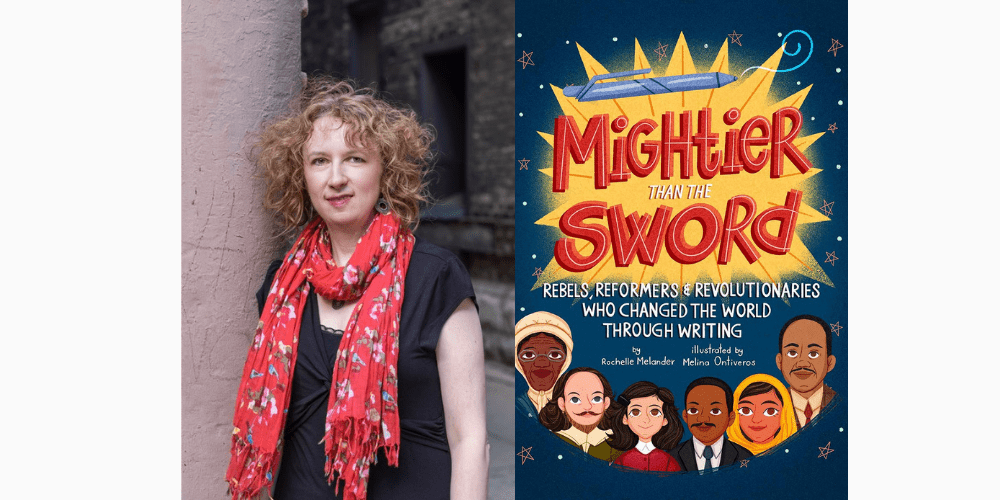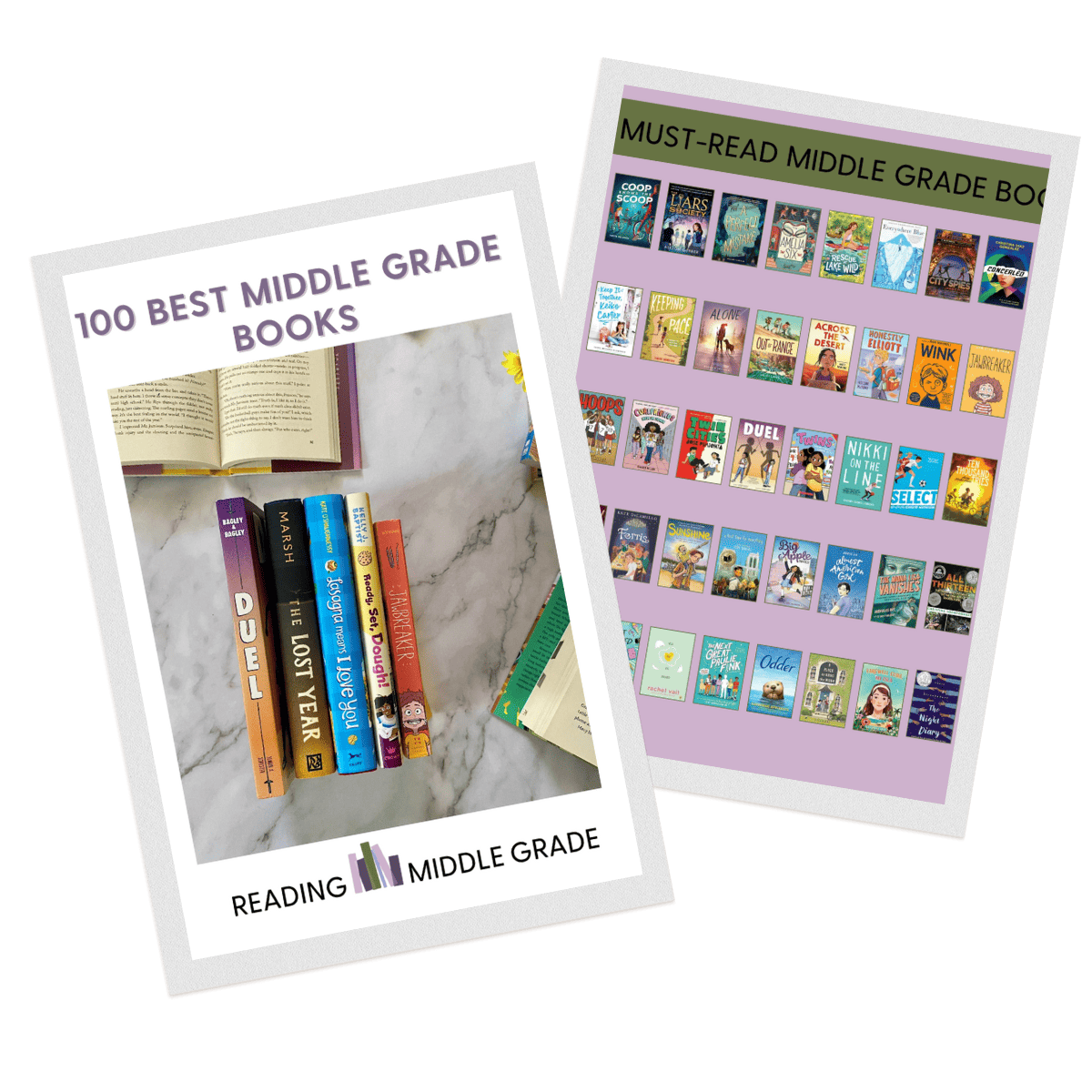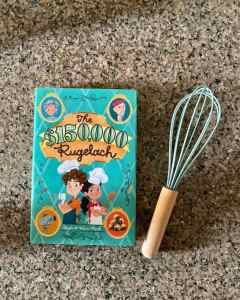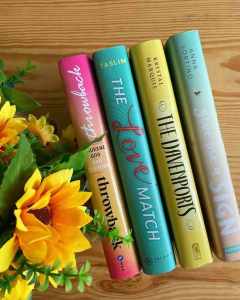Rochelle Melander is writer and writing coach whose books help other writers (including kids) improve their writing. Her most recent non-fiction book, Mightier Than the Sword: Rebels, Reformers, and Revolutionaries Who Changed the World through Writing is a cross between world history and a writing workbook. It highlights activists who changed the world through their writing, and it helps kids write better too. I loved chatting with her about this book, as well as tips for becoming a better writer. Enjoy!
Rochelle is also giving away a copy of Mightier Than the Sword: Rebels, Reformers, and Revolutionaries Who Changed the World through Writing to one reader! Find out how to enter at the end of the interview.

Hi Rochelle! It’s a pleasure to chat with you about your forthcoming nonfiction title, Mightier Than the Sword: Rebels, Reformers, and Revolutionaries Who Changed the World through Writing. Why did you decide to write this book — and for kids no less?
Thank you so much for welcoming me to your blog!
I’ve been teaching writing to young people for years and have seen how books make their lives better. I love seeing young people get excited about their favorite books.
When I tell them stories of people who’ve used writing to make a difference in the world — to protest injustice, change unfair laws, or educate people — they get excited. Then they see that the exercises we do each week have a bigger purpose. By writing a letter or a poem, they just might make a difference in their home or community.
I wrote Mightier Than the Sword to share these writing activism stories with more young people. I added exercises so that they could write to change their lives and communities.
What was the process of writing this book like for you? How long did it take you to write this book? How did you connect with your illustrator, and why were you sure she was a good fit for your work?
After a year and a half of querying agents, I participated in #PitMad, and Beaming Books offered me a contract. I began writing the book in January of 2020 and finished in mid-July. (Of course, I had a head start—I’d written a 125-page book proposal and several of the chapters.)
After that, I had lots of revising to do—which took several more months. The writing process was intense — like running an ultramarathon. I worked on one chapter at a time, researching the person or document. When I figured out how to tell the story, I’d write it. When I had ten or so chapters done, I’d send them to a friend. She let me know when the story worked and when it was boring or tedious. She also checked to make sure the writing exercises and sidebars fit with the chapters. When I got my notes back from her, I revised. After turning in the book to my editor, she had more suggestions for revisions. All of those revisions helped make Mightier Than the Sword a better book!
The publisher chose the illustrator. They sent me some of her images and asked what I thought. I immediately fell in love with her work. I thought her illustration style was a perfect fit for the book, making it kid friendly.
Why did you want to connect your writing activities with past revolutionaries? Who was your favorite revolutionary to research for this book?
I’m interested in how writing changes us and the world. I wanted to help young people see that there are many ways to use writing to protest injustice, including letters, plays, manifestos, poetry, and laws. To demonstrate that, I told the stories of real people who changed the world through their writing.
I have so many favorites, it’s hard to choose. I was delighted to discover Sor Juana Inés de la Cruz. At a very young age, she heard about college and asked her mother if she could dress like a boy and go! (This was in the 1600s, when women weren’t allowed to go to school.) Sor Juana wrote plays, religious poetry, and a manifesto on the rights of women. In that letter, Sor Juana defended the rights of women to learn, write, and publish. She did this by documenting her spiritual and intellectual history as proof of the powerful call to education and writing. Sor Juana is considered the first published feminist in the New World. For many years, she was on the 200 peso bill along with one of her poems. Talk about writing that changes the world!
Your book goes beyond highlighting revolutionaries. You’ve also included writing tips and activities for kids. How do you recommend kids use this book?
I hope young people will browse through the book and read the stories that excite them, in whatever order that happens to be! I’d love it if readers kept a notebook and played with the exercises that interest them. But honestly, there’s no right or wrong way to use the book. Read it straight through. Keep it by your bedside and read a story a night. Use the exercises as journaling prompts. Anything that works!
I know you work as a coach to help writers work more effectively. Have you always been a writer yourself? And when did you realize you wanted to help other writers work better?
I started writing when I was young, and wrote lots of little picture books, stories, and poems. I loved the writing assignments I got in high school, even those long research papers. But when I took my first college composition class, I really struggled. But learning writing rules made me a much better writer. In graduate school, I started writing professionally and never stopped.
When I started having kids, I was struck by how hard it was to work, write, and raise children. I had difficulty finding time to write. I researched how to set goals, regulate my energy, and manage my time. After writing several books, people started asking me how I did it. I gave talks and blogged about what I’d been learning. I’d already been trained as a life coach, so transitioning into coaching writers was a natural one.
I’m currently working on my ADHD coaching certification. When I started studying ADHD, I was surprised that so much of what writers struggle with — getting started, organizing, focusing, and overcoming distraction — are the things people with ADHD deal with every day.
In my work and my studies, I’ve discovered that there are tools to help people navigate all of this so that they can get their writing done. But here’s the caveat: there isn’t a one-size solution. Each person needs to evaluate what works for them. When they do that and find the right tools, it’s amazing to watch. I love seeing people succeed!
What should kids who are burgeoning writers, know about writing — both as a hobby and a profession?
That’s such a great question!
Write a lot! Keep a journal so you can practice writing every day. Write about things you love — that will be fun and exciting. But if you can, take assignments that you think might be difficult or boring. You’ll learn a lot — and get a chance to explore a new kind of writing. That will help you figure out what kind of writing you want to do in your life.
Revise. Remember, most of writing is about revising. I’m not talking about fixing spelling errors, although that helps. Nope, you need to look at your stories and make sure everything works — your plot, pacing, characters, action, and dialogue. If you’re writing nonfiction, then make sure you included the most interesting bits.
Persistence. Many of us get into writing because it comes easy to us. But there will be bumps. Agents and publishers will reject your work. Some books won’t sell well and will go out of print. It helps to have grit — the “passion and perseverance” to work on your big goals. (Quote source: Angela Duckworth) So many of the writers I profiled said that and demonstrated it with their lives!
Read. Read everything that interests you. Then try some new stories or books. If they seem boring, question that. What doesn’t work? Knowing that will help you become a better writer.
If you could share one piece of advice for becoming a better, more productive writer, what would it be?
Know when you write best — and then schedule when and where you are going to write and stick to it. Nothing beats daily practice.
What are some of your favorite writing craft books, for kids and for adults?
For young people (and adults!), I love Ralph Fletcher’s books. My two favorites are Poetry Matters and A Writer’s Notebook. They’re inviting, interactive and encourage creative expression.
I’m also a big fan of Patricia Donegan’s book Write Your Own Haiku for Kids: Write Poetry in the Japanese Tradition – Easy Step-by-Step Instructions to Compose Simple Poems. I love teaching haiku—the form is both accessible and challenging. This book offers rich information as well as examples and exercises.
For adults, I’ve been helped by the exercises in Fiction Writer’s Workshop by Josip Novakovich. I also have been inspired by Poemcrazy: Freeing Your Life with Words by Susan G. Woodridge.
Finally, when I need a reminder on how important it is to shape my life around my art practice (instead of trying to fit in writing between my tasks), I turn to Madeleine L’Engle’s Walking on Water: Reflections on Faith and Art and Anne Truitt’s Daybook. Both of the writers talk about juggling work and family—and how their art practice contributes to their well-being.
Is this book mainly for kids who want to be writers?
Young writers will love this book. But I hope to reach the young people who struggle with writing. So many young people have difficulty with the writing process — what teachers call the 6 + 1 traits of writing. This book encourages readers to play with writing — and in doing so, gives them an opportunity to work on choosing and developing ideas, organizing their thoughts, developing their voice, choosing juicy words, writing well, getting the conventions right, and presenting their work. Because the book has fun exercises, it won’t feel like work. But young people will learn. And I love that!
Thank you for your time, Rochelle!
Thanks for having me as a guest!
Giveaway is US only and closes next Monday, August 9!
a Rafflecopter giveawayBuy Mightier Than the Sword: Rebels, Reformers, and Revolutionaries Who Changed the World Through Writing
Meet Rochelle Melander

Rochelle Melander wrote her first book at seven and has published 11 books for adults, including Write-A-Thon: Write Your Book in 26 Days (and Live to Tell About It) and Level Up: Quests to Master Mindset, Overcome Procrastination and Increase Productivity. She’s a professional certified coach, an artist educator and the founder of Dream Keepers, a writing workshop for young people. Mightier Than the Sword: Rebels, Reformers, and Revolutionaries Who Changed the World through Writing is her debut book for children. She lives in Milwaukee, Wisconsin with her husband, children, and two dogs. Visit her online at writenowcoach.com or rochellemelander.com
Thanks to Rochelle Melander for sponsoring this interview. Thank you for reading and supporting the authors and publishers who keep Reading Middle Grade running.
More Author Interviews
- Melanie Conklin on Every Missing Piece
- Amy Makechnie on Ten Thousand Tries
- Chris Baron on The Magical Imperfect















I’m excited to share this interview with my kids and get this book for them. I really appreciate the suggestions from the author for other books, too. Thanks so much.
This is a great interview